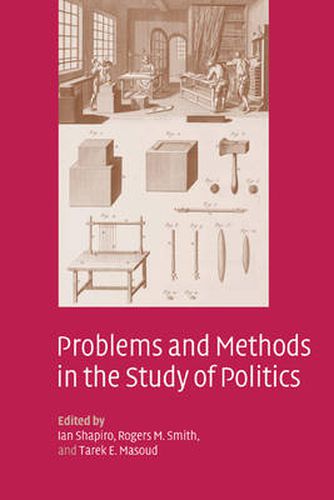Readings Newsletter
Become a Readings Member to make your shopping experience even easier.
Sign in or sign up for free!
You’re not far away from qualifying for FREE standard shipping within Australia
You’ve qualified for FREE standard shipping within Australia
The cart is loading…






The study of politics seems endlessly beset by debates about method. At the core of these debates is a single unifying concern: should political scientists view themselves primarily as scientists, developing ever more sophisticated tools and studying only those phenomena to which such tools may fruitfully be applied? Or should they instead try to illuminate the large, complicated, untidy problems thrown up in the world, even if the chance to offer definitive explanations is low? Is there necessarily a tension between these two endeavours? Are some domains of political inquiry more amenable to the building up of reliable, scientific knowledge than others, and if so, how should we deploy our efforts? In this book, some of the world’s most prominent students of politics offer original discussions of these pressing questions, eschewing narrow methodological diatribes to explore what political science is and how political scientists should aspire to do their work.
$9.00 standard shipping within Australia
FREE standard shipping within Australia for orders over $100.00
Express & International shipping calculated at checkout
The study of politics seems endlessly beset by debates about method. At the core of these debates is a single unifying concern: should political scientists view themselves primarily as scientists, developing ever more sophisticated tools and studying only those phenomena to which such tools may fruitfully be applied? Or should they instead try to illuminate the large, complicated, untidy problems thrown up in the world, even if the chance to offer definitive explanations is low? Is there necessarily a tension between these two endeavours? Are some domains of political inquiry more amenable to the building up of reliable, scientific knowledge than others, and if so, how should we deploy our efforts? In this book, some of the world’s most prominent students of politics offer original discussions of these pressing questions, eschewing narrow methodological diatribes to explore what political science is and how political scientists should aspire to do their work.